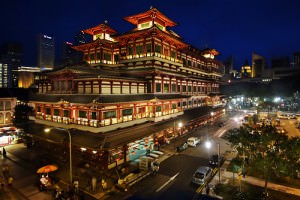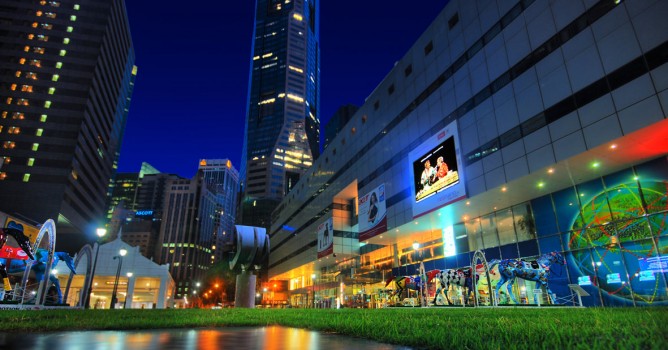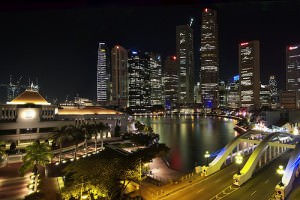Singapore: A Future Economic Powerhouse?
Such measures also ensured that international computer and software companies would continue to do business with companies based in Singapore.
Manufacturing
By 1988, the Singapore manufacturing sector was producing more economic returns than both the financial and business sectors. A large component of the success of the manufacturing sector lies in Singapore’s success endeavour to encourage foreign and international investment in Singapore-based companies. The manufacturing industry was increasingly in the forefront of technological innovation because of the Economic Development Board’s promotion of computer-controlled production, industrial robots and flexible manufacturing systems.
To a lesser degree, domestic enterprises also played a role in the continued industrial growth of Singapore. As the Singapore government believed that an emphasis on large international companies would effectively increase productivity and long-range economic development, major government-sponsored promotional efforts were put into practice, with a focus on higher productivity projects.
The Petroleum Factor
Petroleum and petrochemicals are among Singapore’s main industrial and economic sources of wealth. In the late 1980’s, Singapore was the world’s third largest oil-trading center and as the center for refining petroleum. Additionally, it was the second largest builder of drilling rigs. Their facilities for repairing and maintaining existing rigs and tankers were among the most competitive in Asia. In 1981, when oil prices began to fall, Singapore felt both negative and positive consequences.
 The collapse of oil prices dealt a severe blow to oil exploration. The impact was felt widely and immediately in everything from reduced orders for rig construction to lowered occupancy of luxury apartments as foreign petroleum workers returned home. Their vulnerability was based on their heavy dependence towards outside markets. It lead to the leaders of Singapore in finding a way to buffer their country’s response to perturbations in the world markets and to take advantage of their country’s ability to respond to changing economic conditions.
The collapse of oil prices dealt a severe blow to oil exploration. The impact was felt widely and immediately in everything from reduced orders for rig construction to lowered occupancy of luxury apartments as foreign petroleum workers returned home. Their vulnerability was based on their heavy dependence towards outside markets. It lead to the leaders of Singapore in finding a way to buffer their country’s response to perturbations in the world markets and to take advantage of their country’s ability to respond to changing economic conditions.
Unable to control so much that affected their nation’s prosperity, they concentrated on those domestic institutions that could be controlled. The consequence was an economy characterized by a seemingly paradoxical adherence to free trade and free markets, in combination with a dominant government role in macroeconomic management and government control of major production enterprises.
Some of the additional benefits included the availability of cheaper energy and its refineries invested in equipment and technology necessary to enable them to refine a wide variety of crude oils to obtain a greater proportion of high valued products from the refining process. Petroleum refining alone made up 28 percent of Singapore’s manufacturing output in 1985, although by 1988, it had dropped by half because of a decline in petroleum production and growth in other industries. Singapore also benefited indirectly when large oil importers such as Japan and the United States obtained higher real incomes from lower oil prices, enabling them to increase their imports from Singapore and other countries.
In addition, the extraordinarily high domestic savings rate provided financial reserves, which enabled Singapore to weather economic storms such as trade recessions, and generated a pool of domestically controlled capital to serve the long-term interests of Singapore. However, as the high savings rate was the result of carefully formulated government programs, this included a compulsory contribution of up to 25 percent of all salaries to a government-controlled pension fund.
The government also operated a set of government-owned enterprises and held stock in additional domestic and foreign firms. Government leaders, deeply aware of Singapore’s need to sell its services in a competitive international market, continually stressed the necessity for the citizens to master high levels of skills and to lower their personal wishes for the good of the community. The combination of devotion to free-market principles and the need for internal control and discipline in order to adapt to the demands of markets ensured they would continue to process in the international markets.
































Share the post "Singapore: A Future Economic Powerhouse?"